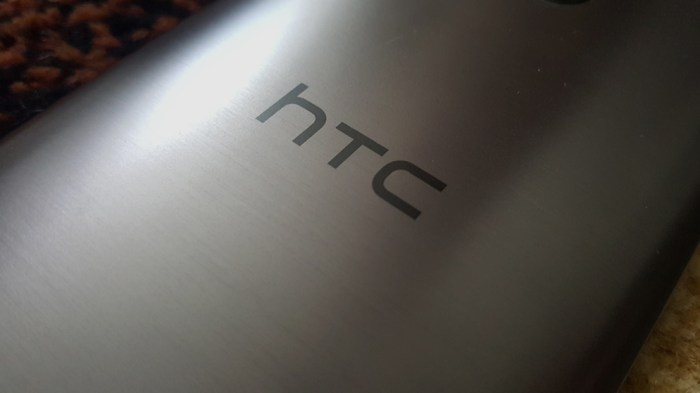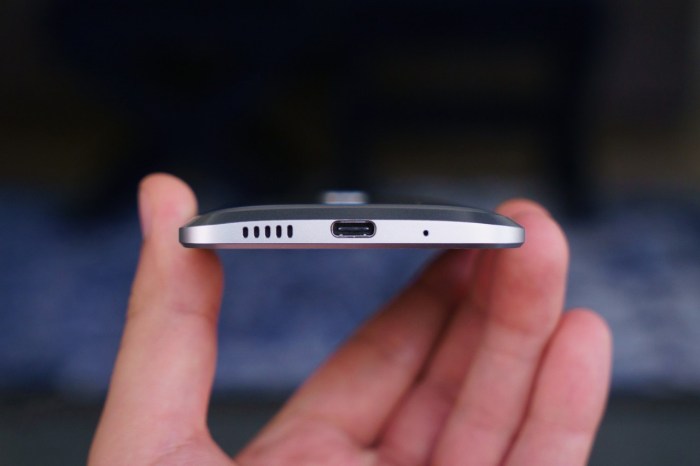The HTC 10
The HTC 10 was a flagship smartphone released by HTC in 2016. It was the successor to the HTC One M9 and aimed to reclaim the company’s position as a leading innovator in the mobile industry. The HTC 10 was a bold attempt to recapture the spotlight in the fiercely competitive smartphone market, offering a blend of cutting-edge technology and design.
Key Features and Specifications
The HTC 10 boasted an impressive array of features, including a 5.2-inch Super LCD5 display with a resolution of 2560 x 1440 pixels, a powerful Qualcomm Snapdragon 820 processor, 4GB of RAM, and a 3,000 mAh battery. It also featured a 12-megapixel rear camera with optical image stabilization and a 5-megapixel front-facing camera. The HTC 10 was praised for its excellent audio quality, thanks to its BoomSound Hi-Fi Edition speakers and its inclusion of a 24-bit/192kHz Hi-Res audio DAC.
Initial Reception and Reviews
Upon its release, the HTC 10 received generally positive reviews from tech critics and consumers alike. Reviewers lauded the phone’s design, performance, camera, and audio quality. Many considered it a significant improvement over its predecessor, the HTC One M9, and a strong contender in the high-end smartphone market.
Marketing Strategy
HTC employed a multifaceted marketing strategy for the HTC 10. The company focused on showcasing the phone’s design, performance, and camera capabilities through a series of promotional videos, social media campaigns, and partnerships with influencers. HTC also emphasized the phone’s audio quality, highlighting its BoomSound Hi-Fi Edition speakers and Hi-Res audio support.
T-Mobile’s Decision
The abrupt discontinuation of the HTC 10 by T-Mobile just two months after its launch in 2016 raised eyebrows in the tech world. This decision, though seemingly sudden, was likely driven by a combination of factors, including underwhelming sales performance and perhaps strategic shifts within T-Mobile’s product portfolio.
Sales Performance of the HTC 10 on T-Mobile
The HTC 10’s initial sales figures on T-Mobile’s network were reportedly disappointing. While exact figures were not publicly released, industry analysts and reports suggested that the device failed to meet T-Mobile’s expectations, prompting the carrier to pull the plug. Several factors may have contributed to this underwhelming performance. The HTC 10 faced stiff competition from other flagship smartphones released around the same time, such as the Samsung Galaxy S7 and the LG G5. These devices offered comparable features and specifications, sometimes at more attractive price points. Additionally, HTC’s brand recognition and market share were already declining at the time, potentially impacting consumer interest in the HTC 10.
Potential Reasons for the Discontinuation
The decision by T-Mobile to stop selling the HTC 10 just two months after its launch was a surprising move. This abrupt decision sparked speculation and raised questions about the factors that contributed to its discontinuation. Several potential reasons could explain T-Mobile’s decision, ranging from competitive pressures to technical challenges.
Competition from Other Smartphone Manufacturers
The smartphone market is highly competitive, with numerous manufacturers vying for market share. At the time of the HTC 10’s launch, T-Mobile’s portfolio already included devices from Samsung, LG, and OnePlus, all of which were popular choices among consumers. These competitors offered devices with similar features and specifications at comparable price points, putting pressure on T-Mobile to offer a compelling alternative. The HTC 10, despite its positive features, might have failed to stand out in this competitive landscape, leading T-Mobile to prioritize devices with stronger market appeal.
Technical Issues and Software Bugs
While the HTC 10 was praised for its design and performance, it wasn’t immune to technical issues and software bugs. Early reports surfaced about problems with the device’s camera, battery life, and software stability. These issues, although not widespread, could have negatively impacted user experience and contributed to negative reviews. T-Mobile, aiming to maintain a positive brand image and customer satisfaction, might have decided to discontinue the HTC 10 to avoid potential reputational damage associated with unresolved technical issues.
The Impact on HTC and T-Mobile
The abrupt discontinuation of the HTC 10 by T-Mobile just two months after its launch sent shockwaves through the industry. This move had significant implications for both HTC and T-Mobile, impacting their market share, future collaborations, and overall strategies.
The decision to pull the plug on the HTC 10 was a blow to HTC’s already struggling market position.
Impact on HTC
The HTC 10’s discontinuation further weakened HTC’s already fragile position in the smartphone market. This move resulted in a significant loss of potential revenue and market share for HTC.
- The HTC 10 was considered a flagship device, and its early discontinuation raised questions about HTC’s ability to compete in the high-end smartphone market.
- The decision also highlighted HTC’s reliance on carrier partnerships, making them vulnerable to changes in carrier strategies.
- The discontinuation negatively impacted HTC’s brand image, raising concerns about its commitment to innovation and product quality.
Impact on T-Mobile, T mobile stopped selling htc 10 just two months after launch
T-Mobile’s decision to discontinue the HTC 10, despite its initial promise, raised questions about their commitment to supporting innovative devices and their overall strategy for partnering with manufacturers.
- The move could potentially damage T-Mobile’s reputation among customers who value choice and device variety.
- It could also impact their relationships with other manufacturers, who might be hesitant to partner with T-Mobile if they perceive them as unreliable.
- The decision to discontinue the HTC 10 might lead to a loss of potential customers who were attracted to the device’s features and specifications.
Lessons Learned: T Mobile Stopped Selling Htc 10 Just Two Months After Launch
The HTC 10’s abrupt exit from the T-Mobile lineup serves as a stark reminder of the fierce competition and rapid evolution within the smartphone market. This event offers valuable insights into the intricate interplay of factors that contribute to the success or failure of a smartphone launch.
Factors Contributing to Successful Smartphone Launches
The success of a smartphone launch hinges on a delicate balance of factors, including:
- Innovation and Differentiation: A compelling product with unique features and a competitive edge is crucial to attract consumers in a crowded market. The HTC 10, while lauded for its design and audio quality, might have lacked a standout feature to capture consumer attention.
- Strategic Partnerships: Collaborations with major carriers like T-Mobile are essential for wide distribution and marketing reach. Strong partnerships can help drive sales and brand awareness.
- Effective Marketing and Communication: A comprehensive marketing strategy that resonates with the target audience is vital. This includes impactful advertising campaigns, social media engagement, and public relations efforts.
- Competitive Pricing: Smartphones must be priced competitively to appeal to consumers while ensuring profitability. The HTC 10’s pricing might have been a factor in its limited success, especially when compared to other flagship devices.
- Post-Launch Support and Updates: Ongoing software updates, bug fixes, and security patches are crucial for maintaining user satisfaction and device longevity. This helps build brand loyalty and ensures a positive user experience.
Lessons for Smartphone Manufacturers and Carriers
The HTC 10’s short lifespan provides valuable lessons for both smartphone manufacturers and carriers:
- Understanding Market Trends: Manufacturers must stay ahead of the curve by anticipating evolving consumer preferences and technological advancements. Failure to adapt to changing market demands can lead to product obsolescence.
- Focus on Differentiation: Developing a unique selling proposition (USP) that distinguishes a smartphone from the competition is essential. This can be achieved through innovative features, superior performance, or a compelling user experience.
- Building Strong Partnerships: Manufacturers and carriers must work collaboratively to ensure a successful launch. This includes aligning marketing strategies, optimizing distribution channels, and providing adequate customer support.
- Adapting to Market Dynamics: The smartphone market is highly dynamic, with rapid technological advancements and evolving consumer expectations. Both manufacturers and carriers must be agile and adaptable to thrive in this competitive environment.
T mobile stopped selling htc 10 just two months after launch – The story of the HTC 10 serves as a stark reminder of the ever-changing landscape of the smartphone market. Even with impressive specs and a strong initial reception, a phone’s success hinges on a complex interplay of factors, including consumer demand, market competition, and overall marketing strategy. The HTC 10’s brief lifespan highlights the importance of adapting to evolving consumer preferences and the fierce competition in the tech industry.
Remember when T-Mobile stopped selling the HTC 10 just two months after launch? Talk about a flop! Meanwhile, Sony is getting ready to unveil its next-gen console, the PlayStation 4 Neo, with a live-streamed event, which you can watch here. Let’s hope the PS4 Neo fares better than the HTC 10 did, or else Sony might be facing a similar fate.
 Standi Techno News
Standi Techno News

